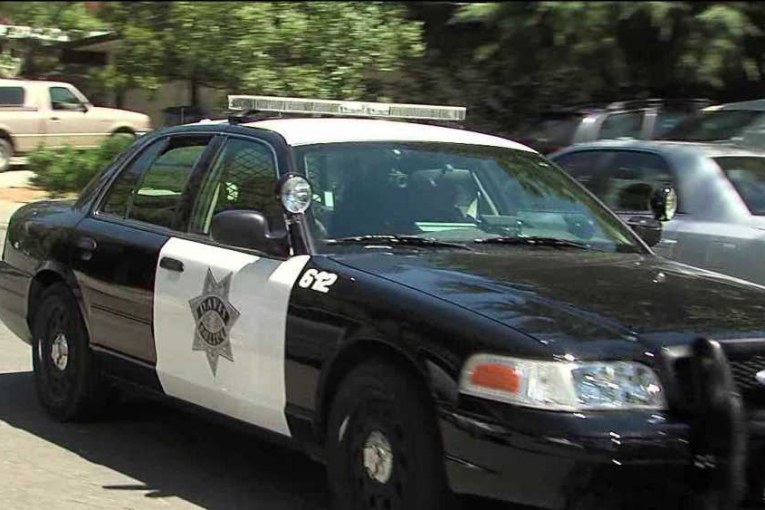

By Emily Dill
DAVIS — The Temporary Joint Subcommittee presented and discussed their final recommendations on public safety for City Council during their Nov. 18 meeting. The nine recommendations were drafted in a report, presented by Social Services Commissioner Bapu Vaitla.
The first eight recommendations of the report passed unanimously, with some containing slight edits to the text. The ninth recommendation on committing to a “vision of re-imagined public safety” struck tension within the subcommittee and with the public.
Before voting occurred, the subcommittee opened the floor to public comment. The public overwhelmed the meeting with gratitude for the hard work put forth by commissioners into this report; while simultaneously voicing their concerns moving forward.
“Your report is a good start,” said commenter Rowan Boswell, “the values that you assert in your key messages are wonderful, it’s important to center our vision and clarify what we are working towards so that we can work together more collaboratively.”
Julea Shaw echoed this, stating that “whatever we decide to implement in this process of re-envisioning public safety, that we are making sure we have robust guidelines for how we are evaluating outcomes, and that those outcomes are transparent to the public.”
Commenter Jordan Varney capitalized on the need for “an unarmed response to as many things as possible,” and that Davis citizens should be treated as “our friends and neighbors,” thereby sending unarmed responses.
Moving forward into the voting process for each individual recommendation in the report, there were several that passed unanimously with little to no discussion, while some were revised.
The third recommendation was to “evaluate the impact of de-escalation, crisis intervention, procedural justice, and implicit bias training,” in which Police Accountability Commission Chair Dillan Horton mentioned the public’s requests of expanding this evaluation beyond just the training.
The subcommittee ultimately agreed to leave the third recommendation as written and make this expansion of evaluation explicit in the ninth recommendation.
The fourth recommendation prompted the need to “shift non-violent service calls to unarmed personnel,” in which the subcommittee conversed about whether or not traffic stops should be included in the text of this recommendation.
Police Accountability Commissioner Don Sherman stated that including traffic in this recommendation “stops the conversation” because it is a “separate issue.”
Horton responded to Sherman’s concerns, beginning with an agreeance that traffic is “one of the more thorny” issues, but that we must still look at this issue because of the “relationship that policing has with individuals of color and communities of color,” stating that “these traffic stops are the hottest issue” to many people in Davis.
The motion to pass the fourth recommendation passed unanimously. The only two recommendations that were edited were the sixth and ninth.
The sixth recommendation was to “restart the warm hand-off program with COVID-safe protocols and de-prioritize or decriminalize minor, victimless offenses,” to which the subcommittee edited state “work with county partners to build an integrated, crisis now type model for behavioral crisis emergencies.”
Social Service Commissioner Matthew Wise wanted to make sure that they didn’t “advocate a program that is not really available,” in regards to the uncertainty behind making the “warm hand-off program” the specific focus in this recommendation.
Wise emphasized the thrust behind this recommendation as being able to “get the person to the place they need to be, instead of just giving them a bus pass…that was definitely an obstacle to people getting services.”
The discussion surrounding the ninth recommendation dominated the second half of this Nov. 18 meeting.

Emily Dill is a fourth year Political Science major at UC Davis, also minoring in Professional Writing and Environmental Policy.
Support our work – to become a sustaining at $5 – $10- $25 per month hit the link:

Our Saturday morning group had a discussion about the importance of traffic stops in relationship to crime deterrence and resolution. I’d like to see statistics on how many suspects are arrested due to traffic stops, and what percent of traffic stops result in arrests for non-traffic crimes.
I am interested in Davis trying out the Eugene, OR model. If what has been reported via the DV is “fair and balanced”, this sounds like a success story.
I thought it was PC verboten to use the term ‘citizens’ now. I used this term recently and got my arse chewed. As I understood it, ‘citizens’ does not include the so-called homeless and undocumented persons – or something – and the correct term is ‘residents’, because you ‘reside’ here. Has this PC order been rescinded?